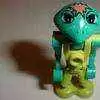-
Welcome to Celiac.com!
You have found your celiac tribe! Join us and ask questions in our forum, share your story, and connect with others.
-
Celiac.com Sponsor (A1):
Celiac.com Sponsor (A1-M):
-
Get Celiac.com Updates:Support Our Content
Blood Test Results Question
-
Get Celiac.com Updates:Support Celiac.com:
-
Celiac.com Sponsor (A17):
Celiac.com Sponsor (A17):
Celiac.com Sponsors (A17-M):
-
Recent Activity
-
- cristiana replied to hjayne19's topic in Post Diagnosis, Recovery & Treatment of Celiac Disease14
Insomnia help
When I was still recovering my gastroenterologist suggested I bought lactofree product as I was very bloated. So I bought some from the supermarket and from memory, I drank a nice big glass of milk - and it went right through me literally within an hour or so, if my memory serves correctly. I came off dairy completely next and it worked like a charm... -
- wellthatsfun posted a topic in Post Diagnosis, Recovery & Treatment of Celiac Disease0
nothing has changed
i have been strictly gluten free for 7 months. this includes avoiding anything that may contain gluten and making sure surfaces and appliances are clean. i am 18 years old in australia and my tTG-IgA results were 69U/mL, pretty low compared to most people's, for reference. i feel the exact same as before. sure, i was pretty much asymptomatic/silent... -
- trents replied to Charlie1946's topic in Related Issues & Disorders48
Severe severe mouth pain
@Charlie1946There is a PM (Personal Message) tool built into the forum website that allows you to send a private message to other forum users. Just hover over their name with your mouse cursor and the menu containing that tool will pop up. This is useful if you want to communicate with an individual without everyone else involved in the thread seeing it.... -
- Charlie1946 replied to Charlie1946's topic in Related Issues & Disorders48
Severe severe mouth pain
Hi everyone, I'm still trying to figure out how to each message individually. I saw one with some information on sebaceous hyperplasia but now I can't find it. I appreciate you all so much for all your responses and advice! God bless! Hi everyone, I'm still trying to figure out how to each message individually. I saw one with some information on sebaceous... -
- Charlie1946 replied to Charlie1946's topic in Related Issues & Disorders48
Severe severe mouth pain
@trents thank you! I have only been taking 20mg 1x a day. Maybe I need to increase it.
-




Recommended Posts
Archived
This topic is now archived and is closed to further replies.